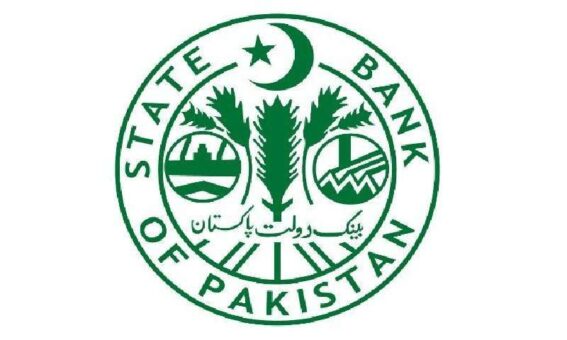Karachi, July 25, 2023 – Pakistan’s private sector has been hit hard by the economic slowdown and high interest rates, as bank loans plummeted by a staggering 87 percent in the fiscal year 2022-2023, according to data released by the State Bank of Pakistan (SBP) on Tuesday.
The steep decline in credit offtake to the private sector has raised concerns among experts, who attribute this distressing situation to the combination of a record-high interest rate and a slowdown in economic activities throughout the year.
READ MORE: SBP Commits Not to Launch New Refinancing Schemes, IMF Country Report States
The private sector managed to secure a meager amount of Rs 211 billion as bank loans during the fiscal year 2022-2023, in stark contrast to the Rs 1,612 billion obtained in the preceding fiscal year. The stark disparity in loan figures indicates the severity of the challenges faced by businesses during this period.
Analysts have pointed out that the SBP’s decision to raise the benchmark interest rate to an unprecedented 22 percent on June 26, 2023, played a pivotal role in deterring businesses from applying for costly borrowing. Additionally, the increase in refinancing rates further dampened the willingness of businesses to seek financial assistance.
READ MORE: IMF Warns of Exceptionally High Economic Risks in Pakistan
The effects of the economic slowdown were not limited to the private sector’s loan woes, as the large-scale manufacturing (LSM) sector also experienced a significant downturn during this period. Data released by the Pakistan Bureau of Statistics (PBS) revealed that LSM output during May 2023 declined by a substantial 14.4 percent compared to the previous year.
The LSM Index plummeted to 110.6 in May 2023, compared to 129.2 in May 2022, signaling a sharp decline in industrial production. Moreover, the cumulative LSM output for the 11 months of FY23 stood at 115.0, down from 127.6 in the corresponding period of the previous fiscal year, marking a considerable 9.9 percent contraction in industrial activity.
READ MORE: Foreign Direct Investment Plunges by 25% in Pakistan During FY23
The reasons behind the downturn in LSM are attributed to various factors, including policy actions taken by monetary and fiscal authorities to curtail aggregate demand and the rising cost of doing business. These circumstances have further exacerbated the challenges faced by the private sector, leaving them with limited access to vital funds for growth and expansion.
According to the data released by the SBP, conventional bank branches extended a total of Rs 171 billion in loans to the private sector during the fiscal year 2022-23, a significant drop from the Rs 972 billion disbursed in the previous year. In contrast, Islamic banks also experienced a decline in lending to the private sector, with loans amounting to Rs 126 billion compared to Rs 239 billion in the previous fiscal year.
READ MORE: Pakistan’s Current Account Deficit Narrows Sharply by 85% to $2.56 Billion
Meanwhile, Islamic banking branches of conventional banks witnessed a significant reduction in loans taken by the private sector, amounting to Rs 86 billion in FY23 compared to Rs 401 billion in the preceding fiscal year.
As Pakistan’s economic landscape remains challenging, policymakers and financial authorities must come together to find effective solutions to revive economic growth and facilitate access to credit for businesses in the private sector. Without decisive action, the already struggling economy may face further setbacks that could have long-term repercussions for the nation’s overall financial stability and prosperity.
